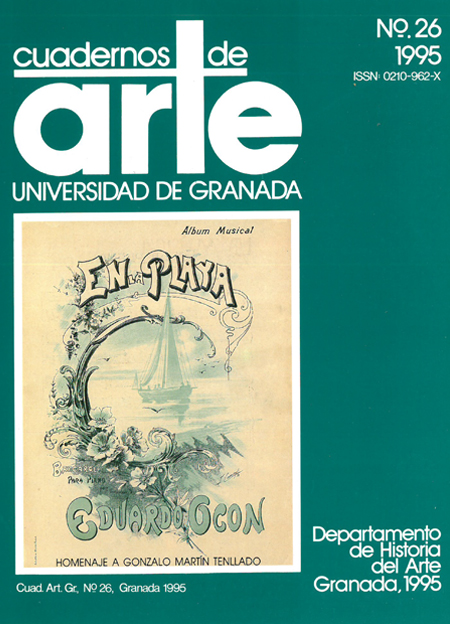The influence wielded by the Royal Academy of fine arts of St. Femando over local govemment decisions in the Ancien Regime: Police Ordinances in Cádiz (1792) and the struggle for the authority to confer the degree of master builder
Keywords:
Municipal ordinances, Town planning, Town legislation, Master builders, Architects, Spain, Cádiz, Documentary sources, Professional trainingAbstract
In Spain the giving of degree or qualification of Architect or Master Builder had become the prerogative of the Academy of St. Fernando as retlected in its Statutes of 1757. Nonetheless over the following years there were still bitter disputes with those other institutions, such as Town Halls, which had previously had this privilege. This article shows how the City of Cádiz attempted -through its Town Council- to recover the authority to power to confer these degrees, by proposing in its Local Police Ordinances of 1792 that this privilege should belong to the local Fine Arts School. This claim was to be opposed by the Academy. The legal case which ensued affords sorne of the most interesting evidence of the debates at the end of the 1 8th century on the means of control of architecture and public building works in the cities of the Enlightenrnent. The present article is also intended as a contribution to the commemoration of the founding in 1744 of the Preparatory Junta, an organization which was to function in an interim manner until the Academy was definitively established in 1752.Downloads
Download data is not yet available.
Downloads
Published
1995-11-01
How to Cite
Anguita Cantero, R. (1995). The influence wielded by the Royal Academy of fine arts of St. Femando over local govemment decisions in the Ancien Regime: Police Ordinances in Cádiz (1792) and the struggle for the authority to confer the degree of master builder. Cuadernos De Arte De La Universidad De Granada, 26, 411–422. Retrieved from https://revistaseug.ugr.es/index.php/caug/article/view/10841
Issue
Section
Estudios
License
Los autores que publican en esta revista están de acuerdo con los siguientes términos:- Los autores conservan los derechos de autor y garantizan a la revista el derecho de ser la primera publicación del trabajo al igual que ser licenciado bajo una licencia Creative Commons que permite a otros compartir el trabajo con un reconocimiento de la autoría del trabajo y la cita de la fuente original, con un uso no comercial y siempre que no se hagan obras derivadas.
- Los autores pueden establecer por separado acuerdos adicionales para la distribución no exclusiva de la versión de la obra publicada en la revista (por ejemplo, situarlo en un repositorio institucional o publicarlo en un libro), con un reconocimiento de su publicación inicial en esta revista.
- Se permite y se anima a los autores a difundir sus trabajos electrónicamente (por ejemplo, en repositorios institucionales o en su propio sitio web) antes y durante el proceso de envío, ya que puede dar lugar a intercambios productivos, así como a una citación más temprana y mayor de los trabajos publicados (Véase The Effect of Open Access) (en inglés).


 ISSN-e: 2445-4567
ISSN-e: 2445-4567








